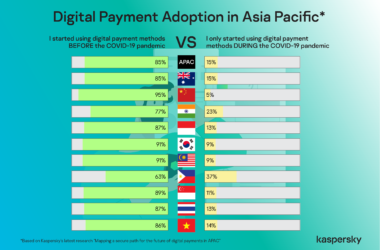According to Kaspersky Security Network (KSN) data, Malaysians are now more aware of traditional cyber threats and are generally avoiding fake websites or infected links shared via SMS, emails, and even phone calls.
It says that web threats were down in the second quarter of 2022. To compare, Q2 2022 saw 11 million threats compared to 28.9 million in Q2 2021.
However, that does not mean that cybercriminals are giving up.

Previously we have covered how 11,300 cases of online scams were reported between January and July of this year.
Cyberthreats have increasingly come in the form of social media ads and app scams. In the first half of 2022, there were only 39 cases but it resulted in RM721,728.69 in losses.
Recently a woman lost RM10,000 after sideloading an app (using an APK installer) that she got through Whatsapp. The app stole her credentials along with her money.

It seems like cyber criminals and scammers are now targeting the devices directly by praying on Malaysians’ degage attitude when it comes to installing apps and still fall victim to social engineering.
That said, it seems that education is still key in combating cyber threats. Its effectiveness is proven, but it has to be constantly updated to catch up with the current threats.
With that in mind, here is some advice from Kaspersky on how you can keep yourself safe from future threats:
- Conduct research on any mobile apps you want or have been asked to download. Before you download and install any mobile apps, besides downloading from official stores, do check the app and the app developer has well-developed terms of service, clear contact information, strict app developer criteria, and a history of providing legitimate content.
- Scan the file before installing with a mobile antivirus solution like Kaspersky Security & VPN.
- Check permissions. If the app demands too much, try to find something similar with more modest requests.
- Disable installation of unknown apps. Remember to change your settings back after installation. Do not leave your phone open to malware.
- Update your apps regularly because security updates are usually given in batches.
- Install antivirus or internet security apps such as Kaspersky Internet Security for Android. Consider this an investment in your personal and financial security.
- Do not login to sensitive accounts in public. Anytime you are on a public network, limit your mobile device usage to activities that do not reveal any of your sensitive information.
- Avoid suspicious emails and websites. Ransomware is commonplace on mobile devices, where cybercriminals will block access to the device and demand a ransom. The best way to avoid these attacks is to be smart about downloading apps. Stick to official stores, and websites. And, if an email or message looks suspicious, do not open it.










